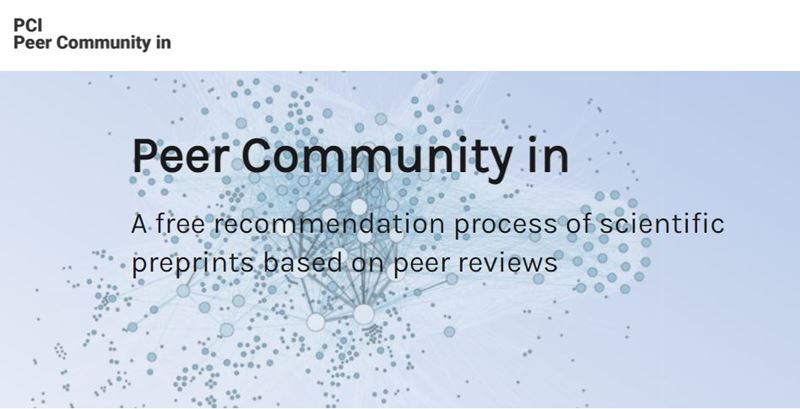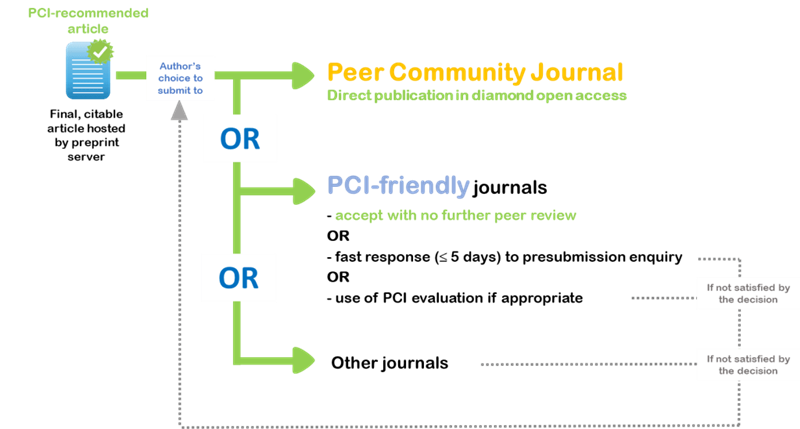Why volunteer to be an editor of another journal?
I have just volunteered to be the journal editor of another journal; I am already academic or associate editor at four others (PeerJ;Salamandra;BioInvasions Records;Herpetological Conservation & Biology). The reason is because the new journal (or not a journal) has an ethical stance that I feel I should support.
Peer Community In have been around for a while, and arethe closest that you can get to a perfect open publishing experience in the Biological Sciences. They drive a number of initiatives that are designed to meet those committed to open publishing, as well as those who want to test the waters.
Peer Community in Evolutionary Biology(PCI-Evol Biol) was launched in January 2017. It is a formal review system for preprints. Since 2020, there are now a suite of otherPCI communities in Biological Sciences, including PCI-Zool where I have signed up as a recommender. Hence, I will now talk about PCI-Zool, although the process is the same whichever PCI community you submit to. Preprints are submitted to PCI-Zool and handled in the traditional way by an editor - called a ‘recommender’. This means that they are sent out for review, and are reviewed and eventually (if they aren’t rejected), a recommendation is given (hence ‘recommender’). This recommendation is where PCI-Zool differs from a normal journal, where this would be the point at which the manuscript is ‘accepted’. Once a preprint is recommended at PCI-Zool, the author has the choice of taking the recommendation to another journal, or (since 2021) agreeing to publish it in the newly formed journal:Peer Community Journal.
If the authors choose to go to another journal, both recommendation and reviews are all open access and available on the PCI-Zool website. There is a growinglist of journalswhose editors will accept recommendations from PCI-Zool, and may use the reviews or augment them as the editor of that journal sees appropriate. However, it’s also worth noting that there are a small number of journals that will not accept preprints recommended by PCI-Zool. The PCI-site publishes the recommendation from the recommender, the peer review history, as well as pointing to the archived preprint.
Alternatively, the authors can choose to publish in thePeer Community Journal. This is very close to the ‘arXivOverlay Journal’, except that PCI host the final formatted version of the manuscript, for which there is no charge. This means that thePeer Community Journalis a newDiamond Open Accessjournal that publishes articles that have undergone PCI reviewing and recommendation. Technically, thePeer Community Journalclaim that they are not an Overlay Journal as the journal hosts the final pdfVersion of Recordleaving authors free to use any preprint server (seehere). This means that the site relies onsponsorshipto maintain the servers and archive content. Aside from this,Peer Community Journalachieves my highest accolade in being bothtransparentandDiamond Open Access.They also have a laudable set of great ethical guidelines for reviewers andrecommenders. This then being the reason that it gets my full support.
Diamond Open Access is a big deal. It means that there is no paywall for readers, and that there is also no barrier for authors. MosthybridorGold OAmodels that we are used to require the payment of an Article Processing Charge (APC), and these range from around €500 to €4900. Given that most publishers claim to need to charge ~€2000 per article, how much sponsorship would be needed to run the PCI system (includingPeer Community Journal)? You should not be too shocked to find out that it the functioning costs of the PCI project are only €5,500 per year (less that the cost of 3 papers published in mosthybridorGold OAmodels), because the human capital costs are paid by the academic community, and there are no profits


